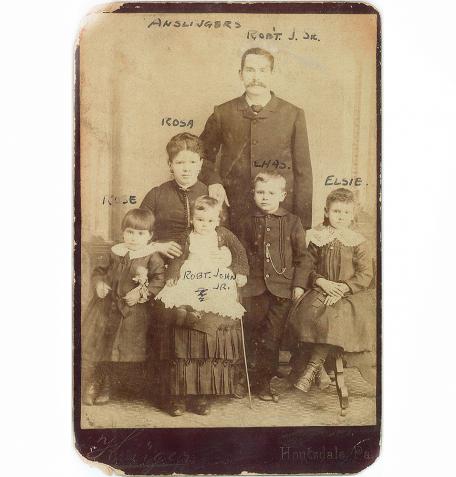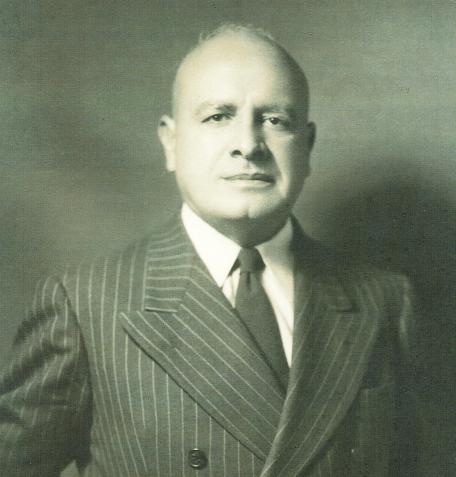Section Content

Harry was the eighth of nine children born to Robert and Christiana Anslinger. This photo is of Harry’s family before he was born, circa 1885.
Born in Altoona, Pennsylvania, in 1892 to immigrant parents of modest means, Harry Jacob Anslinger rose from railroad worker, to the consular service at the State Department, to commissioner of the Federal Bureau of Narcotics (FBN).
That rise, in little more than a decade, could be described as meteoric. He served five presidential administrations, from Hoover to Kennedy, and led a government agency through the Great Depression, World War II, and the Cold War.
Holding what some today might refer to as the job of drug czar, Anslinger successfully kept one foot on the enforcement side, running FBN from its inception in 1930 until 1962 when he reached the mandatory retirement age of 70, while at the same time helping to craft drug policy and treaties not only for the United States but for the entire world. Anslinger remained active on the world stage long after his retirement from FBN.

Harry Jacob Anslinger, Commissioner, Federal Bureau of Narcotics, 1930–1962. Undated photograph.
Anslinger accomplished much in his decades leading America’s battle against drug trafficking, drug misuse, and organized criminal groups that sought to profit from the spoils of this enterprise. Unlike the FBI’s J. Edgar Hoover, Anslinger has been largely a forgotten leader. A man influenced by the times he lived in and the events happening around him, he was not without controversy. He has been criticized most harshly by those opposed to laws governing marijuana, laws that were passed by Congress during the time Anslinger was in charge at FBN in the 1930s.
Perhaps Anslinger’s greatest legacy will be his understanding, far earlier than most, that the drug situation in the United States requires a global response—cooperation among law enforcement authorities in source, transit, and consuming countries, and international treaties to build societies free from drug misuse and drug trafficking.


